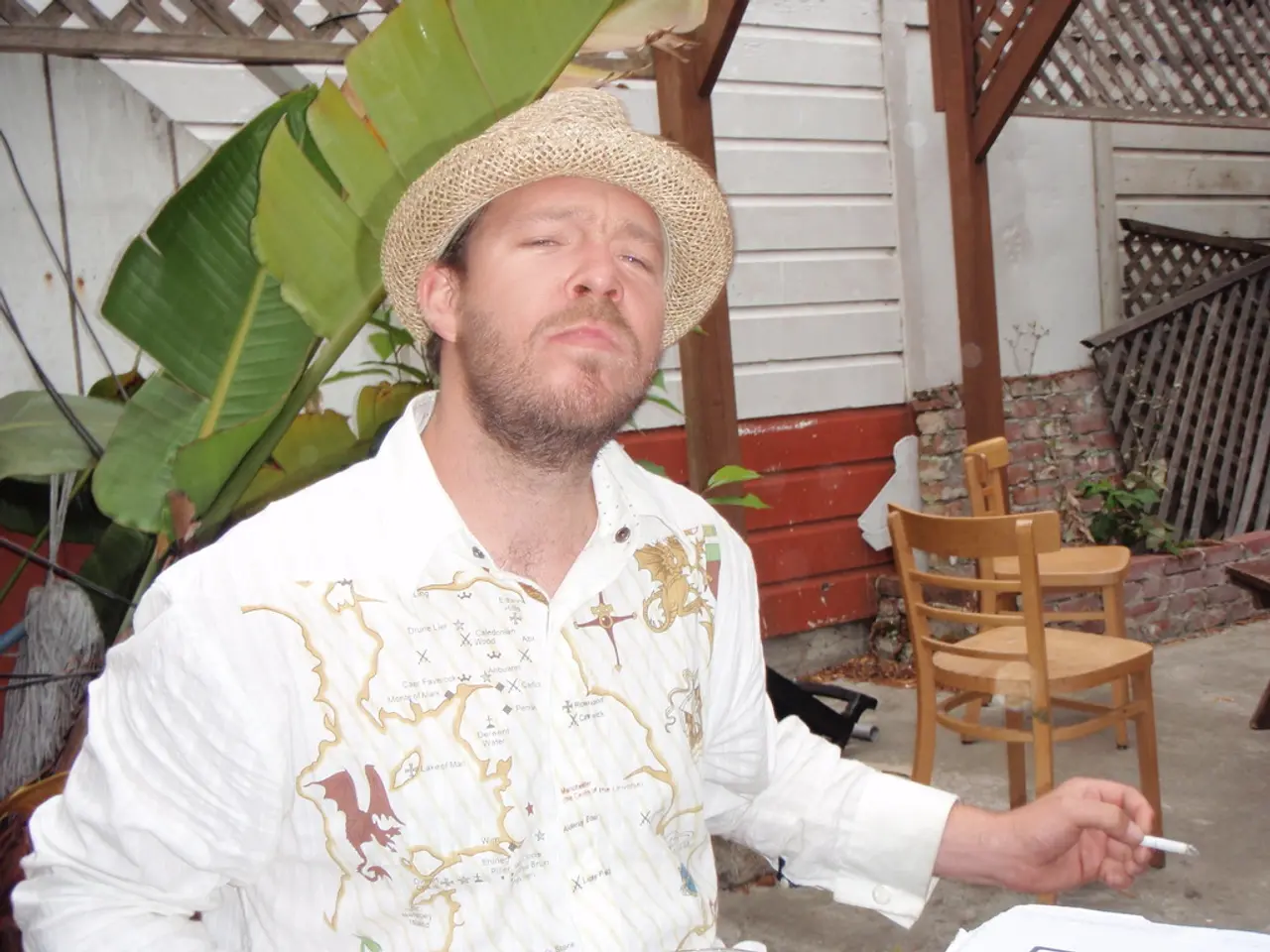Investigating the Birthplace: Delving into the Genesis of Existentialism
In the vast tapestry of human thought, existentialism stands as a powerful testament to the human spirit's quest for meaning, purpose, and authenticity. This philosophical movement, which emerged in the 20th century as a response to the uncertainties of modern life, has its roots deeply embedded in the works of some of history's most influential thinkers.
The dialectical method of Georg Wilhelm Friedrich Hegel, developed in the 19th century, was instrumental in shaping the foundations of existentialism. Hegel's idea that self-consciousness develops through conflict and resolution resonated with the existentialist emphasis on personal responsibility and the confrontation with absurdity.
Socrates, a philosopher from the 4th century BCE, was among the first to question the nature of existence, self-awareness, and personal responsibility. His introspective approach laid the groundwork for many existentialist themes that would surface centuries later.
Fast forward to the 16th century, Michel de Montaigne explored the complexities of the self, introspection, and the inherent uncertainty of human existence, foreshadowing the existentialist concern with the absurdity and uncertainty of human existence.
In the late 19th century, Friedrich Nietzsche declared "God is dead," focusing on radical freedom, the will to power, and the individual's struggle to find meaning in a world without absolute truths. His emphasis on individual creativity and existential freedom challenged nihilism and influenced later existentialists.
Early proto-existentialist thinkers like Søren Kierkegaard and Nietzsche laid the groundwork for existentialism by emphasizing individual experience, subjectivity, freedom, and the challenge of authentic existence. Kierkegaard, often considered the "father of existentialism," focused on the individual's subjective experience, personal choice, and the leap of faith required to live authentically.
Edmund Husserl's development of phenomenology in the early 20th century provided a crucial foundation for existentialism, while Plato, Socrates' student, expanded on these ideas with his theory of forms. The 17th-century philosopher Blaise Pascal discussed the fundamental anxiety and despair that comes with human existence and the search for meaning, planting seeds for the later development of existentialism's focus on human suffering, the search for meaning, and the importance of individual belief.
Stoicism, particularly the works of Epictetus and Marcus Aurelius in the 1st century CE, emphasized personal freedom within the constraints of fate, which resonates with existentialist ideas about individual responsibility and the search for meaning in a seemingly chaotic world.
In the mid-20th century, Jean-Paul Sartre and Simone de Beauvoir popularized existentialism, advocating for radical freedom, individual responsibility, and the creation of personal meaning. Their works left a lasting imprint on various fields, including literature, theater, and psychology (e.g., existential therapy).
Albert Camus, associated with existentialism, explored the absurdity of life and the rejection of traditional meaning, advocating for a response rooted in defiance and the creation of one's own values.
Today, existentialist themes continue to resonate in philosophical discourse, postmodernism, discussions on technology and freedom, and the modern self's search for authenticity. The legacy of existentialism extends beyond philosophy, offering a powerful tool for understanding the complexities of modern life.
- The roots of existentialism extend to the works of ancient philosophers, such as Socrates, whose introspective approach questioned the nature of self-awareness and personal responsibility.
- Friedrich Nietzsche, a 19th-century thinker, focused on radical freedom, the will to power, and the individual's quest for meaning in a world without absolute truths.
- Georg Wilhelm Friedrich Hegel's dialectical method, developed in the 19th century, played a significant role in shaping the foundations of existentialist thought with its emphasis on self-consciousness developing through conflict and resolution.
- Edmund Husserl's phenomenology in the early 20th century provided a foundation for existentialism, while Plato's theory of forms expanded on similar ideas.
- Blaise Pascal discussed the fundamental anxiety and despair stemming from human existence and the search for meaning, influencing existentialism's focus on human suffering and the individual's search for purpose.
- Stoicism, emphasizing personal freedom within the constraints of fate, shares some philosophical similarities with existentialism, particularly in its themes of individual responsibility, self-development, and the search for meaning.
- The 4th-century BCE philosopher, Socrates, laid the groundwork for many existentialist themes, including self-awareness and personal responsibility, which would surface centuries later.
- In the mid-20th century, Jean-Paul Sartre and Simone de Beauvoir popularized existentialism, advocating for radical freedom, individual responsibility, and the creation of personal meaning.
- Kierkegaard, often considered the "father of existentialism," focused on the individual's subjective experience, personal choice, and the leap of faith needed to lead an authentic life.
- Existential themes continue to resonate in contemporary philosophical discussions, postmodernism, and the modern self's pursuit of authenticity, offering a tool to better understand the complexities of modern life.




